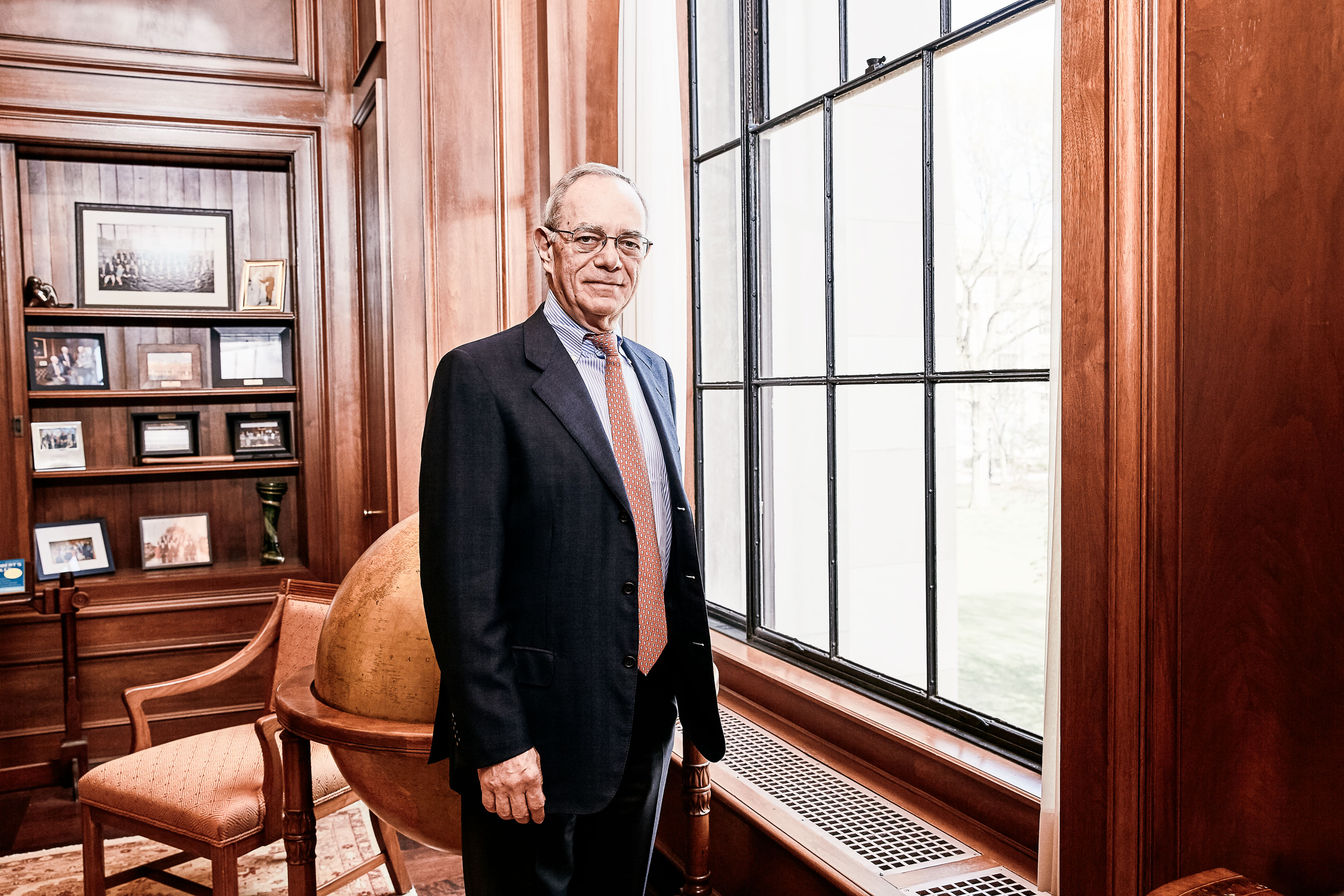Sustaining our mission, shaping the conversation

Looking back to the start of the pandemic, I am struck by our community’s formidable strength. In March 2020, we did not know what it would take to sustain MIT’s great mission through this crisis. Since then, we have found a way together, and we have made it work. That accomplishment belongs to every member of our community—and thanks to our immense shared effort, MIT is still MIT. We forge ahead with the same passion for the Institute’s mission, the same distinctive practical optimism, the same gaze toward the future. And many members of our community, including our alumni, are actively pursuing research and innovation to better understand the virus and help humanity contain it.
As the United States strives to respond to complex crises from covid-19 to climate change, I believe that the perspective of our community—analytical, hands-on, grounded in facts and science, attuned to complex systems, and undaunted by hard problems—should be very well represented in the national conversation.
One way each of us can help bring that about is through voting. So I am delighted to highlight the ongoing work of MITvote, a student-run, nonpartisan organization focused exclusively on encouraging MIT students to register and vote and to become civically engaged. Thanks to MITvote, from 2014 to 2018, voter turnout among our students more than tripled. And this past fall, MITvote volunteers personally emailed 7,502 MIT students who are US citizens, to help each of them form a voting plan.
MITvote’s results would be impressive on any campus. But I especially admire its success because I have been at MIT long enough to know that sometimes people who are deeply focused on science and engineering feel that politics is not for them. They may believe that it is irrational or even irrelevant, or that one vote cannot make a difference.
For those who feel that way, I would like to reframe the issue. When we listen to a symphony orchestra, amid all that sound, the addition of any single instrument may be hard to hear. But when the whole brass section starts playing, it changes everything. So I hope that each of us can think of voting in this way: Not as a “solo” gesture. Not as the act of a single individual that may or may not be noticed. But as a great shared civic act that we all perform together, in concert.
As individuals, we naturally disagree on many questions. But I am convinced that through active civic engagement, including voting at the local, state, and federal levels and extending far beyond that, too, the people of MIT can be profoundly useful to their communities and to society as a whole.
Keep Reading
Most Popular
Large language models can do jaw-dropping things. But nobody knows exactly why.
And that's a problem. Figuring it out is one of the biggest scientific puzzles of our time and a crucial step towards controlling more powerful future models.
How scientists traced a mysterious covid case back to six toilets
When wastewater surveillance turns into a hunt for a single infected individual, the ethics get tricky.
The problem with plug-in hybrids? Their drivers.
Plug-in hybrids are often sold as a transition to EVs, but new data from Europe shows we’re still underestimating the emissions they produce.
Google DeepMind’s new generative model makes Super Mario–like games from scratch
Genie learns how to control games by watching hours and hours of video. It could help train next-gen robots too.
Stay connected
Get the latest updates from
MIT Technology Review
Discover special offers, top stories, upcoming events, and more.